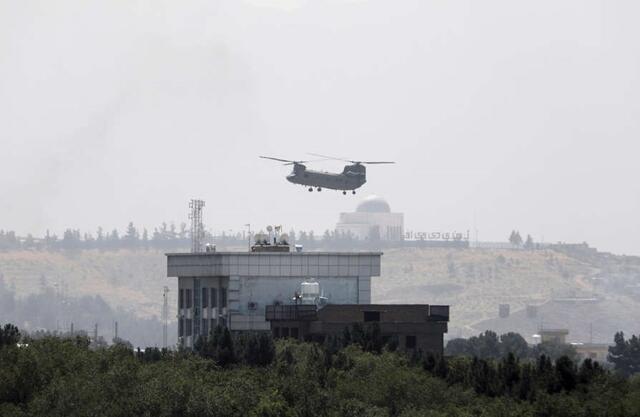
Experts Discuss Withdrawal from Afghanistan
On Friday, September 10, almost 20 years to the day after 9/11, the Saltzman Institute for War and Peace Studies gathered experts to discuss the withdrawal of U.S. troops from Afghanistan at the end of August.
Stuart Gottlieb, an adjunct professor at SIPA who served as the moderator, opened the panel by reflecting on his own memories of 9/11, when he was working for Senator Chuck Schumer in Washington. From there Gottlieb briefly recounted the history of conflict in Afghanistan before moving to discuss the more recent withdrawal. He highlighted the idea that “all in” or “all out” is a false choice, and that there was a potential middle ground that could have been found.

Dipali Mukhopadhyay, a former SIPA professor who now teaches at the University of Minnesota’s Humphrey School of Public Affairs, said state-building in service of countering extremism has always been about creating regimes that are dependent on and loyal to outsiders, which inherently creates a fragile government. The created state’s budgets, she explained, are reliant on foreign aid and outside support, which makes them beholden to and controlled by those more powerful states. In more recent times, U.S. troops stationed in Afghanistan played more of a political than a military role. Their presence indicated a commitment of support and was enough to convince elites to stay invested in the preservation of the government and discourage the Taliban from pushing for a military takeover. Mukhopadhyay shared her experiences assisting her colleagues, contacts, and friends in Afghanistan navigate and negotiate the checkpoints to connect with organizations that could help them leave for any country that would take them.
Professor Stephen Biddle of SIPA supported the war in Afghanistan and opposed the withdrawal, an opinion that he said he knows is unpopular. The political structure of the Afghan state made it difficult to create an indigenous military that would take over the security of the country. An independent national army would have been seen as an immediate and existential threat by other armed actors in the region and would have been pre-emptively destroyed. The internal balance of power in Afghanistan relied on corruption and cronyism to create control without chaos. Corruption buys loyalty, and cronyism provides reliability. These do not help force out an insurgency, but they can maintain a stalemate if all else stays equal. The stakes in Afghanistan were real but limited, Biddle said, and after a certain point it became difficult to justify the costs. When it comes to the withdrawal, Americans simply are not willing to spend to prevent the unfolding humanitarian crisis. The lesson from Afghanistan is not “never get involved in a land war in Asia.” Instead, we need to understand that different choices and decisions would have resulted in a different outcome. Defeat was not inevitable. In fact, according to Biddle, a compromised negotiated settlement could have been possible ideally starting in 2002, and even as recently as 2020.
Jason Dempsey, senior advisor at the Columbia University Center for Veteran Transition and Integration, spoke next to share the military perspective. He highlighted the dysfunctional relationship between the United States and its military. In his mind, there are two camps when it comes to the military: respectful indifference and unquestioning fandom. Those who are respectfully indifferent would remain so as long as the deaths and costs stayed low. Those with unquestioning fandom believe in the pop-culture fantasy of the military and have little understanding of how it actually works. The military is perceived as being able to do anything, but it has strengths and weaknesses like any institution. In Afghanistan, reality was not considered, further undercutting central government advancements. The patronage networks were ignored, and the money and contracts were not well managed. These U.S. failings were replicated in the Afghan army and set the conditions for collapse. According to Dempsey, the United States needs to get past the idea that the military is a heroic problem solver that can do anything, and instead realize that it is a massive federal bureaucracy that does not perform particularly well without attention from the public and Congress. With that in mind, Dempsey said that respecting the sacrifice or members of the armed forces means paying attention and asking hard questions.
The panel concluded with SIPA adjunct faculty member Mitch Silber, who talked about how the terror threat is greater today. Afghanistan holds the perceived honor of being one of the few places to defeat a global superpower, making it a potential hub for terrorist training and activity for groups with similar values to the Taliban. The previous leaders of Al Qaeda are mostly dead, but the ideology is still alive and present. Moving forward, Silber said, the United States needs to keep tabs on groups who could be potential terror threats as they form and grow, and the best way to do that is to gather intelligence with eyes and ears on the ground.
The panel was followed by a short Q&A session where attendees asked the panel to expand, clarify, or explore further the United States’ role in Afghanistan and what might happen in the region next.
— Barbara Lantz MIA ’22